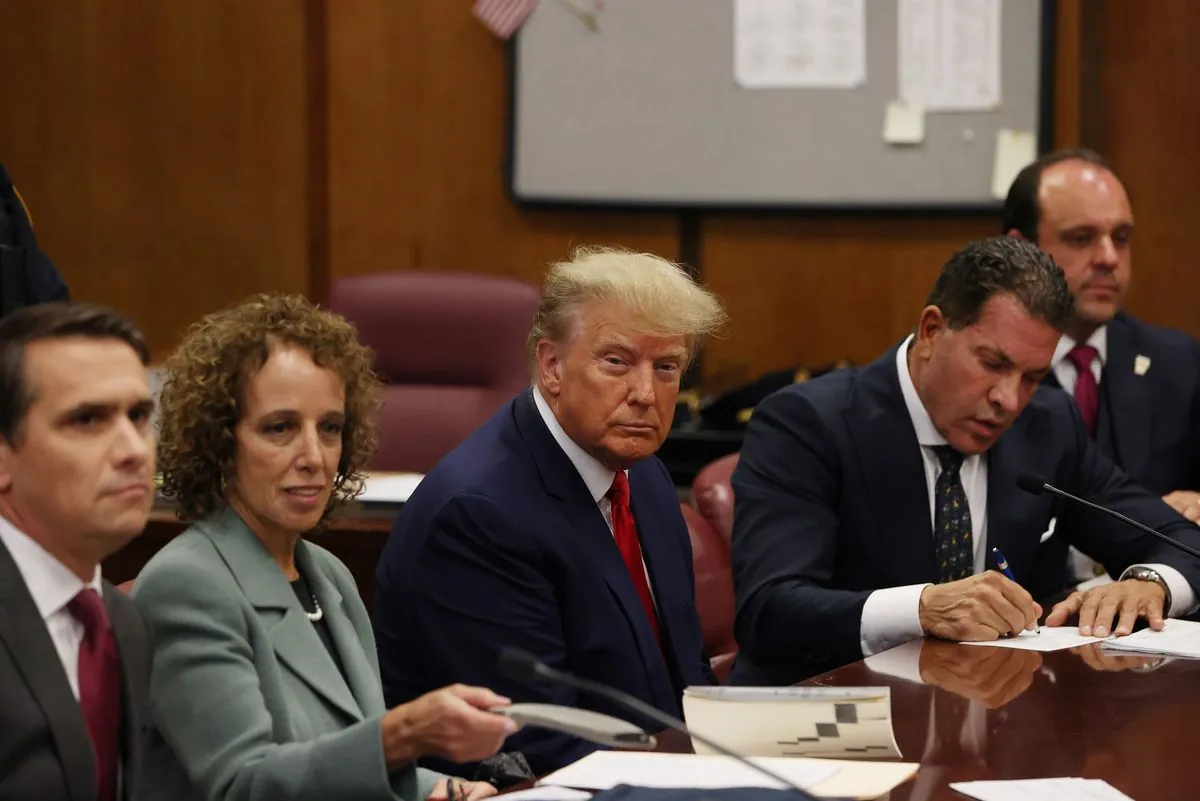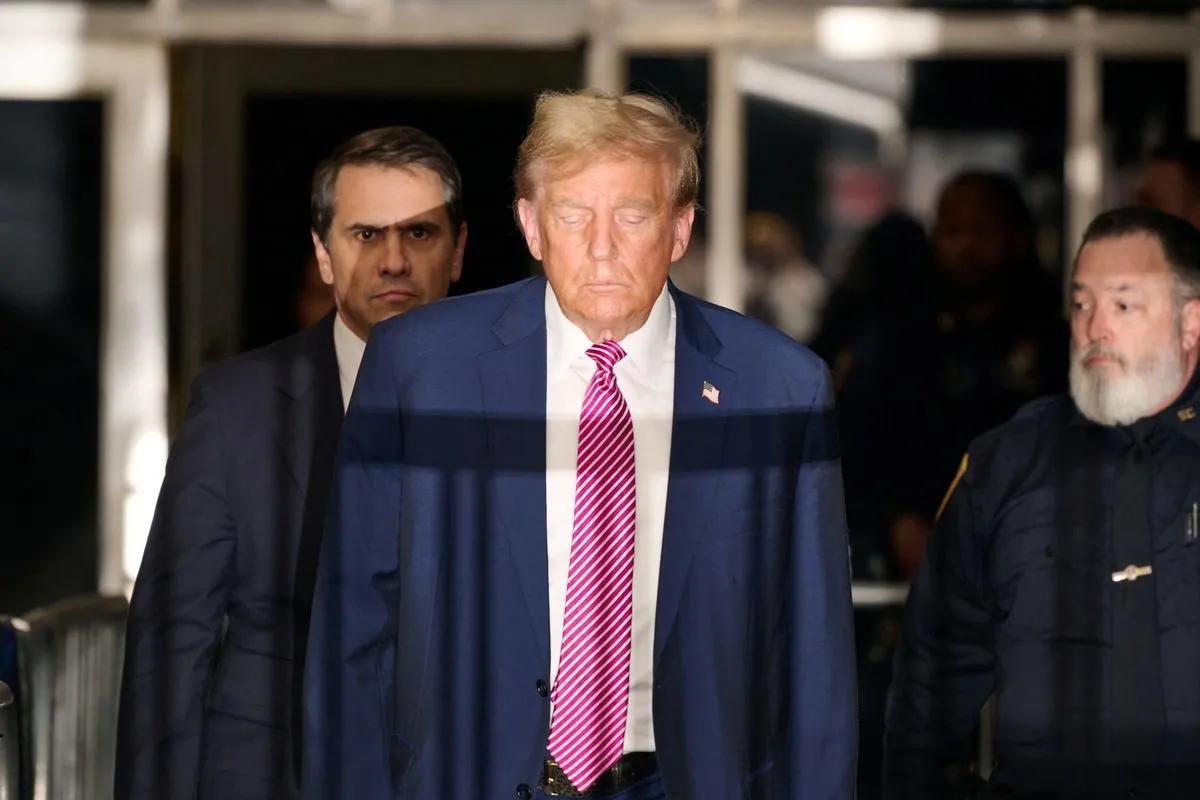Trump's Legal Team Seeks Sentencing Delay in Hush Money Case
Former President Donald Trump's lawyers have requested a postponement of his sentencing in the hush money case, citing concerns over timing and appeal opportunities. The current date is set for September 18, 2024.

Donald Trump's legal representatives have formally requested a postponement of his sentencing in the hush money case, currently scheduled for September 18, 2024. This development comes as the former president faces 34 counts of falsifying business records, a conviction stemming from a case involving payments to an adult film actress.
The request for delay centers around the timing of a crucial decision by New York Supreme Court Justice Juan Merchan, set for September 16, 2024. This ruling will determine whether a recent U.S. Supreme Court opinion on presidential immunity should impact Trump's conviction. The defense team argues that the two-day gap between this decision and the scheduled sentencing is insufficient for proper legal maneuvering.

In a letter dated August 14, 2024, attorneys Todd Blanche and Emil Bove expressed concerns about the compressed timeline. They argue that this schedule could potentially hinder Trump's ability to pursue appeals or other legal avenues if the ruling is unfavorable. The lawyers emphasized that a single day is an "unreasonably short period" for initiating such processes.
The case revolves around a $130,000 payment made to adult film actress Stormy Daniels in the lead-up to the 2016 presidential election. Prosecutors allege that Trump attempted to conceal the nature of this payment, which was reportedly made to prevent Daniels from disclosing an alleged sexual encounter from 2006. Trump has consistently denied that any such encounter occurred.
"The requested adjournment is also necessary to allow President Trump adequate time to assess and pursue state and federal appellate options in response to any adverse ruling."
The defense team has raised concerns about the prosecution's use of certain documents and testimony, arguing that they may be inadmissible under the standards set by the Supreme Court's July 1, 2024 opinion on presidential immunity. However, prosecutors maintain that their case remains strong even without these contested elements.
Trump's lawyers have drawn parallels to his election obstruction case in Washington D.C., where Judge Tanya S. Chutkan is not expected to set a schedule for new motions related to the Supreme Court's ruling until September 5, 2024. This comparison underscores their argument that the New York case's timeline is problematic.
The request for delay has sparked discussions about the balance between legal proceedings and electoral processes. Trump, as the Republican nominee for the upcoming presidential election, faces a unique situation where legal timelines intersect with campaign schedules. His lawyers have gone so far as to suggest that maintaining the current sentencing date could be perceived as having "naked election-interference objectives."
As this legal drama unfolds, it highlights the complex interplay between the judiciary and the political sphere in the United States. The case not only raises questions about campaign finance and business practices but also touches on broader issues of presidential immunity and the timing of legal proceedings in relation to electoral cycles.


































